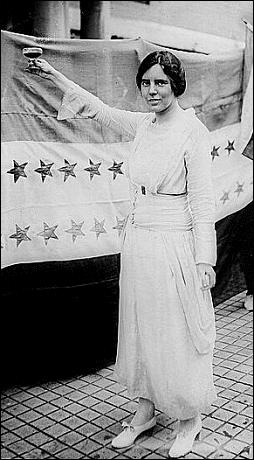The Catholic Church has a lot more to answer for than abuse of altar boys. For years the Catholic Church in Ireland enslaved young women in “Magdalene laundries” run by convents, where they were unpaid prisoners forced to work their entire lives for the Church. The last of these laundries closed in 1996.
Ireland’s Dirty Laundry
Wounds Still Fresh For Thousands of Women Enslaved by the Catholic Church
By Hilary Brown and Matt McGarry
C O R K, Ireland, Jan. 26
— A sudden spate of TV exposés, docudramas and a major motion picture have brought to light one of the most shocking episodes in the history of the Catholic Church in Ireland — the existence of the now-notorious “Magdalene laundries,” a sanctified form of slavery.
Operated by the Sisters of the Magdalene Order, the laundries were virtual slave labor camps for generations of young girls thought to be unfit to live in Irish society.
Girls who had become pregnant, even from rape, girls who were illegitimate, or orphaned, or just plain simple-minded, girls who were too pretty and therefore in “moral danger” all ran the risk of being locked up and put to work, without pay, in profit-making, convent laundries, to “wash away their sins.”
They were completely cut off from their families, and many lost touch with them forever.
Stripped of their identities, the girls were given numbers instead of names. They were forbidden to speak, except to pray. If they broke any rule or tried to escape, the nuns beat them over the head with heavy iron keys, put them into solitary confinement or shipped them off to a mental hospital.
Over a period of 150 years, an estimated 30,000 women were forced into this brutal penance, carried out in secret, behind high convent walls.
Towards the end of the 20th century, the laundries began to close, as the power of the Church in Ireland diminished and as social attitudes became less puritanical. Incredibly, the last Magdalene laundry to shut down was in 1996.
‘We Were the Living Dead’
Mary Norris, 69, was committed to a convent laundry in Cork for two years. An articulate, intelligent woman, she was transferred from an orphanage at age 15 because she was “disobedient.” Her number was 30.
On one occasion, she said, the nuns actually ordered the girls to pray for those held in Soviet prison camps, a bitter irony, as she considers the convent laundries “an Irish gulag.”
Though it was clearly very painful for her, she took us around the convent — now abandoned — where she had suffered so much.
“In the winter, it was freezing cold, and in the summer, it was like the desert, it was so hot with the steam,” she said. “We were the living dead. We weren’t treated as human beings, as individuals. We were just part of the workforce. Nothing more, nothing less.”
Guilt by Illegitimacy
Sadie Williams, 64, spent a total of four years in two different convent laundries. She was 14 when she was virtually kidnapped by two women who had determined that she was “in moral danger.” Williams liked to take a walk in the evenings, after working all day at a bed and breakfast in Dublin. She said the women considered her much too attractive to stay out of trouble.
She was only 14 when she ended up in a convent laundry outside town as “Number 100,” and locked into a cell each night. She says she almost never saw daylight.
“Oh, it was dreadful,” she said. “I cried and cried all the time, and kept asking why, why wasn’t I getting out. And I would write begging letters to my mother. When I finally got out, she was already dead and buried three years. But I was never told, even though I was writing, still writing letters to her.”
She has since learned that the nuns stopped all her mail. Her mother wasn’t married, so Sadie was considered to be guilty of the sin of illegitimacy.
No Apology
There have been no direct reparations from the Irish Catholic Church to the tens of thousands of women it used as slave labor. Nor has there been a formal apology. It’s not even known how many victims of the Magdalene laundries are still alive: they are not organized, and many don’t want to talk about this terrible part of their past.
Very few Churchmen in Ireland will comment on the scandal. An exception is Willie Walsh, the Bishop of Killaloe. Over a cup of tea in his residence, he said that it is “a source of pain and shame.”
“These girls were rejected by society, and the Church in some way thought it was giving refuge to these girls,” he says. “I suppose … the Magdalene laundries was in some instances a form of slavery.”
The Rev. Patrick O’Donovan is more outspoken.
“It’s an appalling scandal,” he says. “You could compare them to concentration camps. … The nuns thought they were doing good. … They didn’t realize the damage they were doing.”
Mary Norris has campaigned to have a simple memorial built in the convent where she was held. Thirty names are engraved on a simple headstone; dating from 1876 to 1973. Some women spent their entire lives in these institutions. Having been cut off from their families, they had nowhere to go.
Norris says she no longer hates the nuns who oppressed her. “If I hated them,” she says, “they’d still be winning. They’d still have control over me.”

